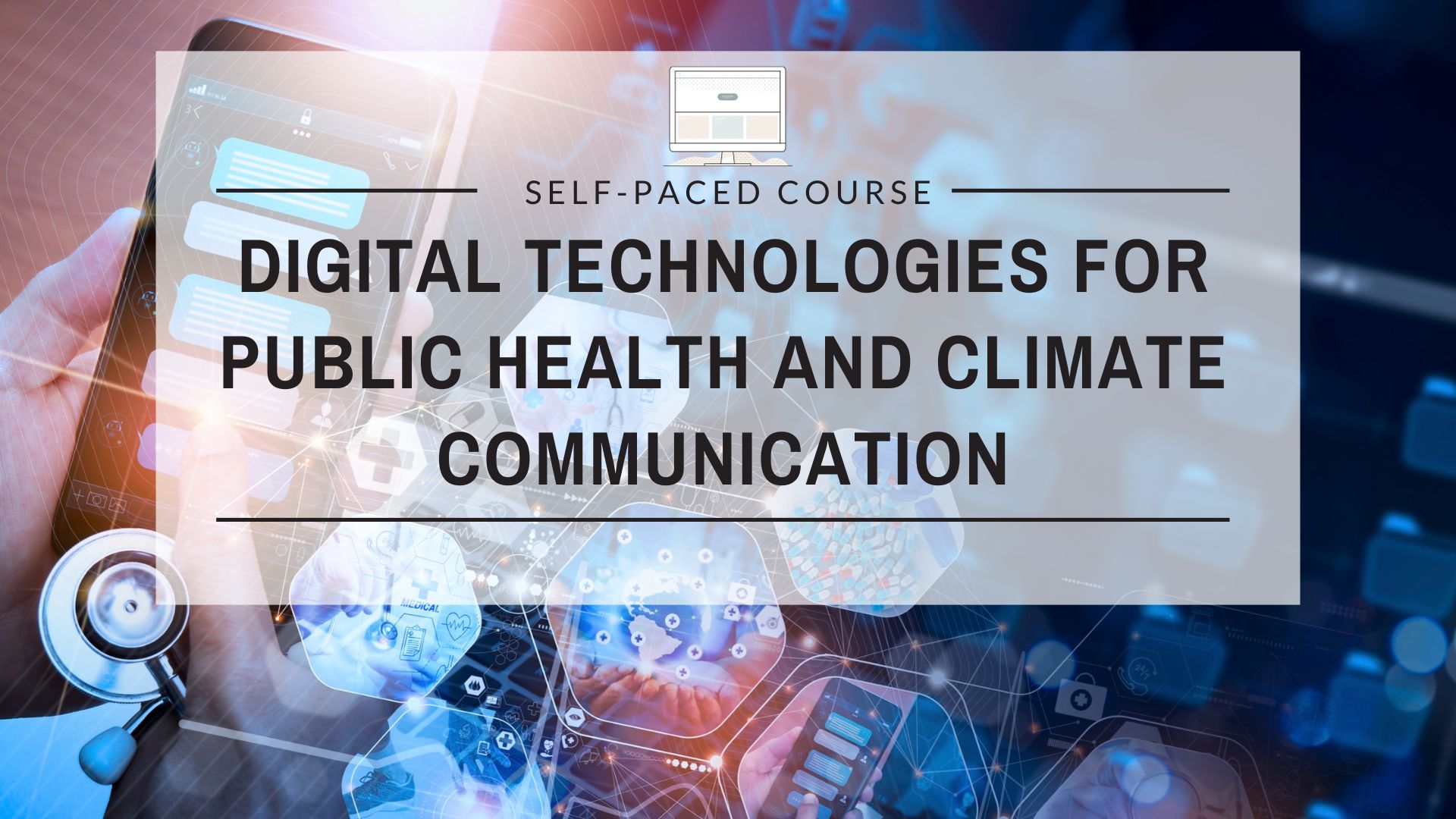The aim of this e-course is to equip learners with the capability to use innovative and efficient digital technologies and mobile solutions to communicate ongoing public health challenges and to gain basic knowledge of mobile app development. The practical
component of the e-course is designed to build skills around delivering key climate and health messaging, as well as communicating and engaging with public health stakeholders using mobile applications. Mobile applications are powerful tools for engaging
the public and collaborating with organizations and companies that prioritize public health.
Why take this course?
In today's world, it is crucial for public health and climate change workforce to be proficient in using digital technologies and mobile solutions to promote and protect the health and well-being of people of all ages, genders, ethnicities, and religions
facing the reality of climate change.
After completing the course, learners will be able to:
- Identify novel and efficient digital technologies and mobile solutions to communicate the best available scientific information on public health issues.
- Analyze the benefits and challenges, as well as critical considerations to design accessible, informative, and actionable content to enable effective public health and climate communication.
- Identify emerging low-cost mobile technologies for measuring environmental exposures and utilize them to establish a connection between these exposures and their impact on health outcomes.
- Design a mobile application prototype for communication on the health effects of climate change.
- Identify and use effective social media platforms for public health and climate communication.
- Describe trends and opportunities for the use of mobile apps within public health to address climate change.
The course at a glance
The e-course is divided into seven modules. Each module takes approximately three hours to complete and features lessons and practical exercises that give you an overview of a different aspect of how to use mobile app-based programs to communicate the
most prioritized public health challenges. A short quiz and practical assignments at the end of each module allow to verify if learning objectives were achieved.
- An Introduction to Digital Public Health Communication. Module 1 provides learners with concise and up-to-date information on the key concepts in digital public health solutions. This module showcases novel mobile applications, the functions they can perform, and the ways they can be used for digital health-related communication.
- Using Mobile Apps for Public Health Data Collection and Management. Module 2 provides an overview of emerging low-cost mobile technologies for measuring environmental exposures. It also discusses how researchers, citizen scientists, and policymakers are applying these technologies to link environmental exposures to health outcomes.
- Basics of Mobile Health Applications Design and Development. Module 3 explores the topic of mobile health (mHealth), and the various tools utilized in the development of mHealth applications.
- Creating a Mobile App Prototype for Communication on the Health Effects of Climate Change. Module 4 focuses on the basics and practical aspects of creating a mobile application for informing people about the health effects of climate change.
- Digital Public Health Interventions. Module 5 provides the foundational knowledge needed to design and implement successful digital interventions in public health settings.
- Social Media Apps for Public Health Communication. Module 6 focuses on the design of accessible, informative, and actionable public health and climate content for social media.
- Trends and Opportunities in Mobile Apps for Public Health Communication. Module 7 explores trends and opportunities for the use of mobile applications within public health to address climate change and looks at the areas of potential growth for applications to address climate change.
Get your Certificate
After completing the course, you will get a certificate of completion. Once you complete all videos, lessons, and activities in each module, you will need to complete the final quiz at the end of each module before the certificate becomes automatically
available for download.
Course Instructors and Contributors
Paulina Marie Colombo
, Doctoral Student, Department of Epidemiology & Biostatistics, Mel and Enid Zuckerman College of Public Health, The University of Arizona
Danielle Embry
, MEd, Senior Coordinator, Academic Affairs, Mel and Enid Zuckerman College of Public Health, The University of Arizona
Erich Healy
, BA, Online Designer, Western Region Public Health Training Center, Mel and Enid Zuckerman College of Public Health, The University of Arizona
Sriram Iyengar
, PhD, Associate Professor, College of Medicine-Phoenix, The University of Arizona
Chris Chaeha Lim
, PhD, Assistant Professor, Department of Community, Environment & Policy, Mel and Enid Zuckerman College of Public Health, The University of Arizona
Allison Root
, DrPH, MS, RD, Instructional Specialist, Western Region Public Health Training Center, Mel and Enid Zuckerman College of Public Health, The University of Arizona
Ilyssa Stein
, BA, Mel and Enid Zuckerman College of Public Health, The University of Arizona
Yevheniia Varyvoda
, PhD, Research Professional, Mel and Enid Zuckerman College of Public Health, The University of Arizona
This course is developed and provided by Mel & Enid Zuckerman College of Public Health, Western Region Public Health Training Center, The University of Arizona under the support of Dean’s Strategic Initiatives & Innovation Fund.
